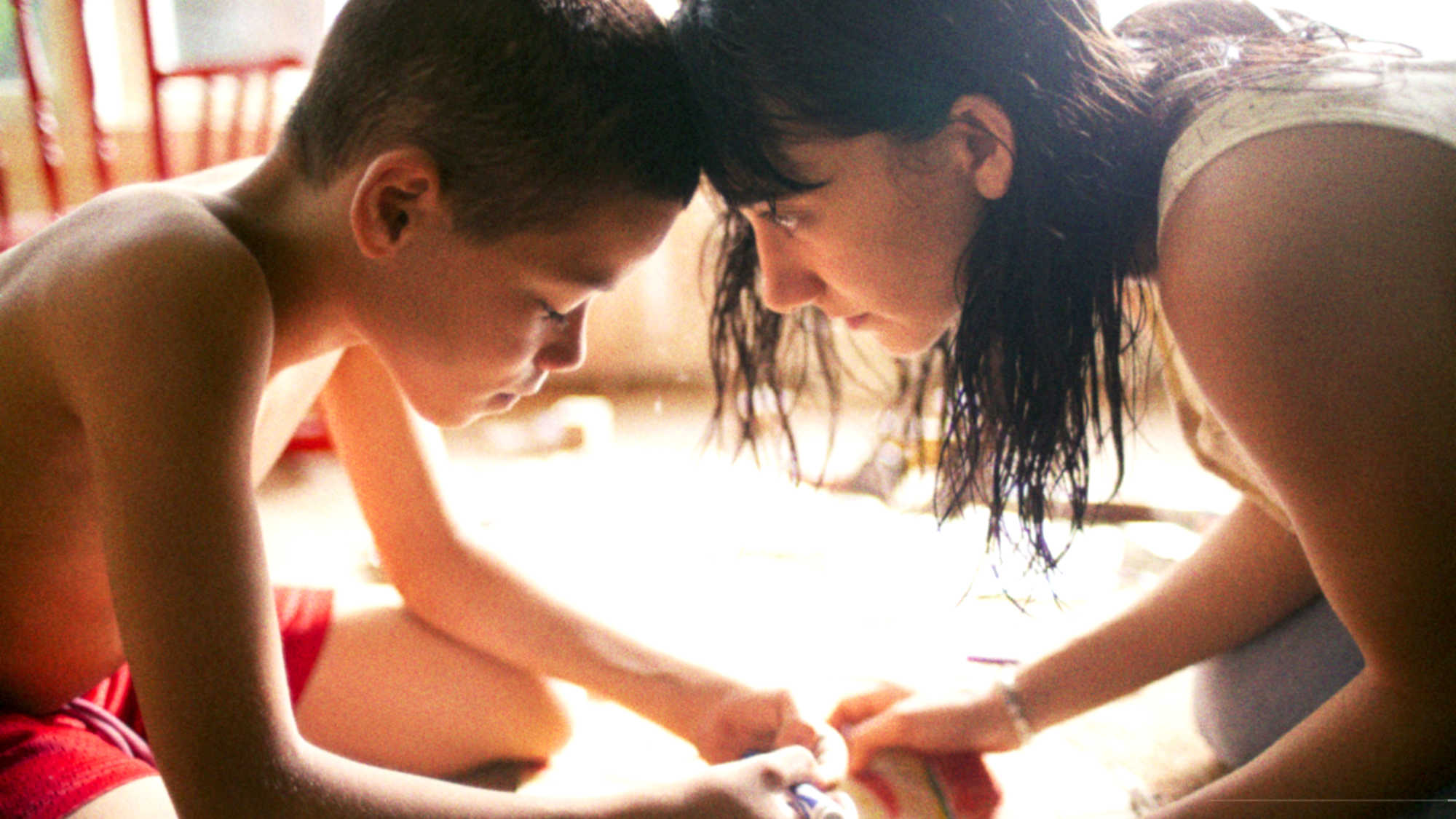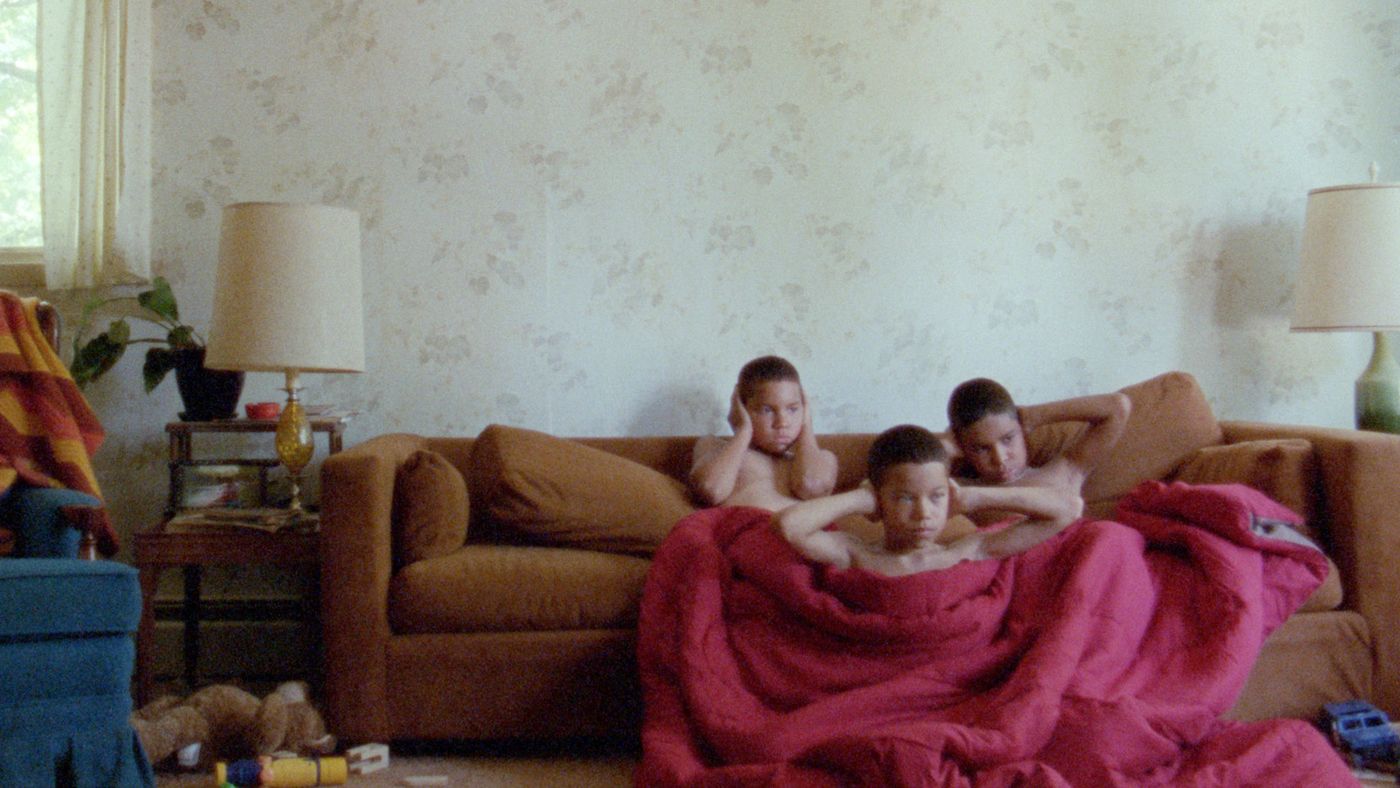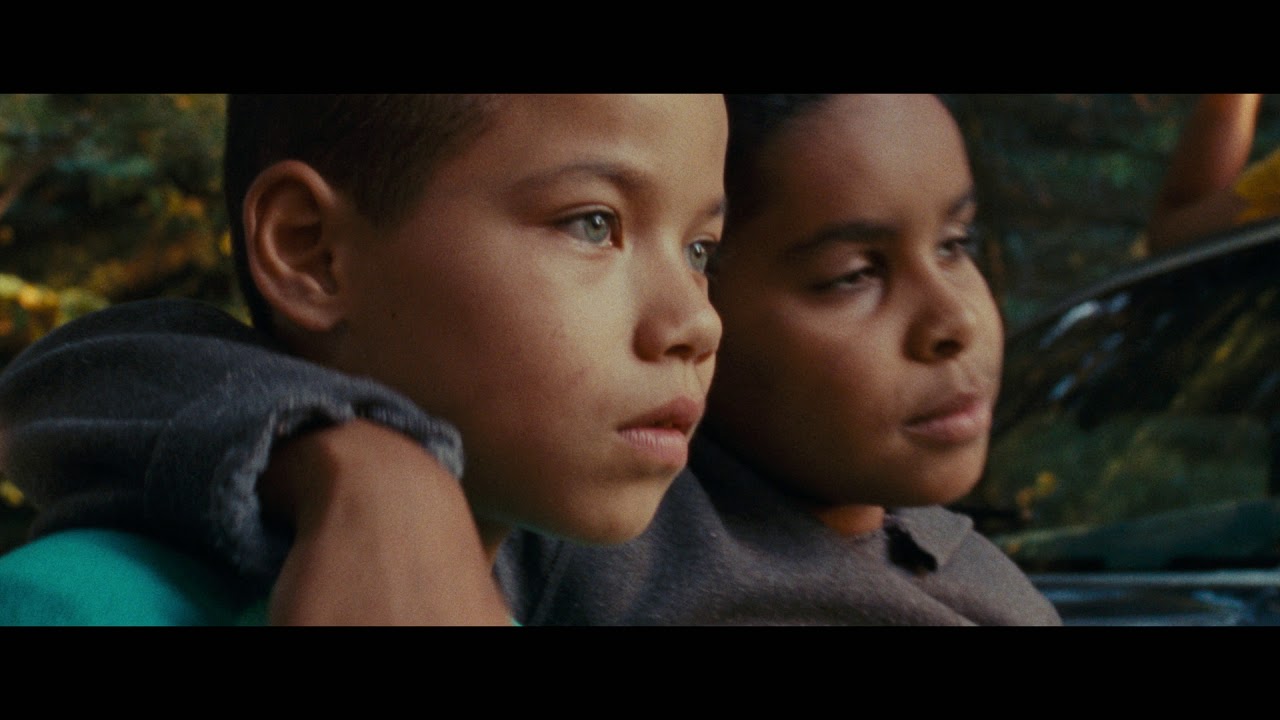One of the most insistent and silly tropes in coming-of-age films is the Preternaturally Articulate Child, the little tyke who functions in the narrative as, essentially, a grown-up trapped in a small body. Sometimes — particularly in that heady period of the late ’80s that gave us Like Father, Like Son, Vice Versa, and Big, among others — we compensate for this awareness with literal body-switch stories, but more often we just put alarmingly adult phrases and observations in the mouths of kids. It makes sense: by and large, it is adults who make these movies, so, even when they’re not evidently wise beyond their years, screen children’s expressions of inexperience and innocence come front-loaded. (“A ‘children’s story’?” Thomas Pynchon asked; “there are none. The kids are all away dreaming.”) The inchoate content of childhood joys and terrors doesn’t usually make the cut, because it doesn’t mesh with the forms. We The Animals is a mostly successful, sometimes very beautiful attempt to allow for the former by modifying the latter
Jeremiah Zagar‘s feature debut, adapted from Justin Torres‘ eponymous book, is a fragmented, sensory bildungsroman, awash in animated flourishes and natural forest light caught on Super 16. It looks like childhood, or at least a kind of childhood. Like The Florida Project, We The Animals features child non-actors in the leads (three brothers) and matter-of-fact family poverty, and like Moonlight, it deploys an ineffable impressionism to convey confused queer longings. Those inescapable recent touchstones don’t really do the short project (an achingly brief 90 minutes) justice, though.
 The narrative, such as it is, concerns a white Brooklyn mother (Sheila Vand, of A Girl Walks Home Alone At Night) and a Puerto Rican father (Raúl Castillo), raising their sons in a land of lakes and forests. Ma, fragile and temperamental, was very young when she got pregnant; Paps is abusive and loving in turn. We only glean backstory by inference — We The Animals isn’t perverse about its withholdings, but we pick things up in often overheard snatches, in casual reference, and in mood; that is, the way children often have to learn.
The narrative, such as it is, concerns a white Brooklyn mother (Sheila Vand, of A Girl Walks Home Alone At Night) and a Puerto Rican father (Raúl Castillo), raising their sons in a land of lakes and forests. Ma, fragile and temperamental, was very young when she got pregnant; Paps is abusive and loving in turn. We only glean backstory by inference — We The Animals isn’t perverse about its withholdings, but we pick things up in often overheard snatches, in casual reference, and in mood; that is, the way children often have to learn.
Most of the film’s time is spent with the boys, charting their early closeness and the growing distance of impending adolescence. All three — Evan Rosado as Jonah, Josiah Gabriel as Joel, and Isaiah Kristian as Manny — are remarkable. Often fending for themselves, they’re a little tribe (or, as the title would suggest, a pack): they don’t “play in the woods” so much as aggressively frolic and scream, beating their chests; they hunker down at night in close, cold quarters, under a shared sheet, murmuring “Body heat body heat body heat body heat,” giggling, trying to stay warm, turning claustrophobia into fellowship; they eat soy sauce packets once the food’s depleted and Ma hasn’t gotten out of bed in days, before venturing out to steal vegetables from a neighbor’s garden. They’re little anarchists, pre-figuring a better world amid traumas they keep at bay through solidarity and mutual aid.
 It can’t last. Cumulative traumas lead to acting out, to semi-random violence like throwing rocks at cars — desperate acts to announce, defiantly, that they exist. In We The Animals, nearly every act carries with it that child-like desperation for presence: “I am here.” Jonah’s secret notebooks — he writes under the bed at night, dreaming up fiery imagery and fierceness, words we never read spilling out all over the place, desires upon desires — are discovered, and he’s marked, wordlessly, as the “weird one”. He falls in love with the metalhead down the road, risking everything for a kiss. Once, we see him smile, alone in the dark.
It can’t last. Cumulative traumas lead to acting out, to semi-random violence like throwing rocks at cars — desperate acts to announce, defiantly, that they exist. In We The Animals, nearly every act carries with it that child-like desperation for presence: “I am here.” Jonah’s secret notebooks — he writes under the bed at night, dreaming up fiery imagery and fierceness, words we never read spilling out all over the place, desires upon desires — are discovered, and he’s marked, wordlessly, as the “weird one”. He falls in love with the metalhead down the road, risking everything for a kiss. Once, we see him smile, alone in the dark.
What We The Animals gets very right about all of this is the structure: images disappear, only to reemerge much later, seemingly a propos of nothing but making emotional sense. The notebook illustrations become fanciful animated sequences, that barely cohere before we’re thrust into unfamiliar situations. Not a lot is said, much of it in voiceover, and even less is explained. It’s too narrative-bound to be truly experimental, but the accumulation of moments gives a sense of youthful wonder and genuine fear born out of anxious sounds and juxtapositions.
We care about these people because We The Animals gives a sense of their internal lives, particularly Jonah’s, without the sort of plotty elements that remind us that every story is Adults Only. The kids are all away dreaming, and We The Animals gives a glimpse of what one of those dreams might feel like.

